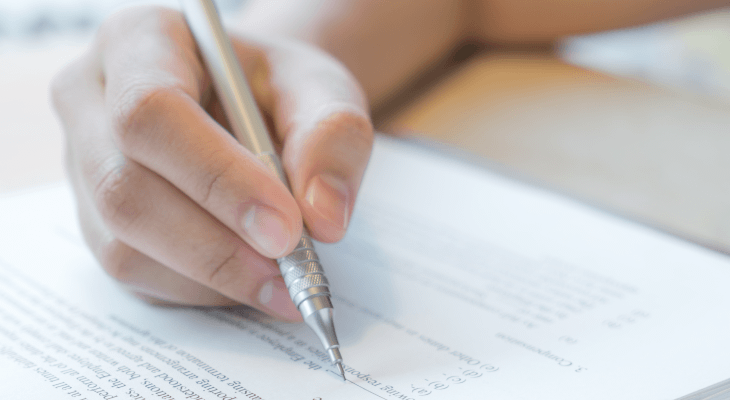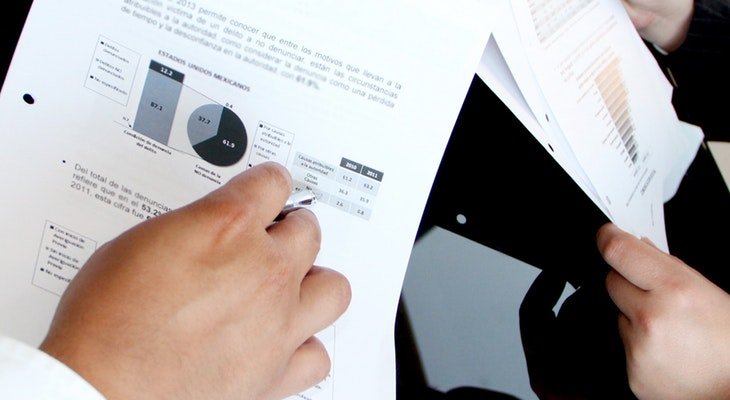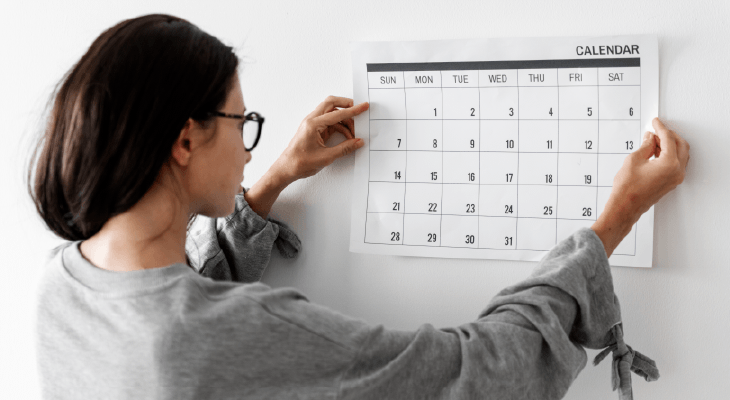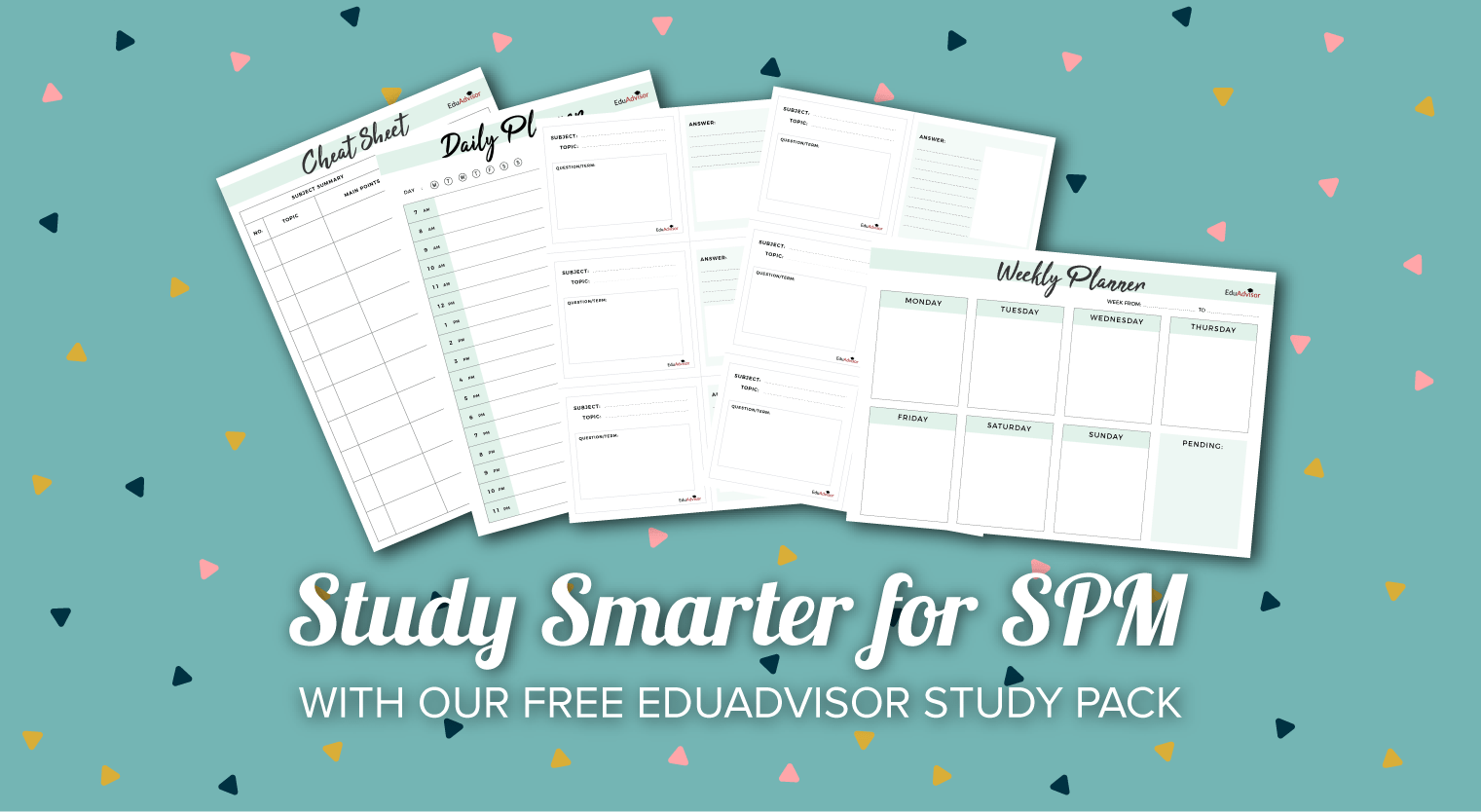Trials, Not Tribulations: 5 Tips to Prepare for Your SPM Trial Exam
Stuck in a study slump with SPM trials on the way? Here are 5 tips to help you get back on track!
Updated 05 Mar 2019

If you needed a sign, then this is it.
With SPM trial exams looming, it’s time to get your nose to the grindstone. However, if you’re bubbling with anxiety and nervousness on the inside, remember — your trial exams do not have to be a tribulation!
Here are 5 tips to help you through one of the most harrowing times of the year!
3 Months Before Trial Exams
#1. Say goodbye to Captain Cram

We can’t stress this enough — start your revision early! Form 5 teacher Madam KamalaDevi Palanisamy from SMK Bercham in Ipoh, Perak says you should maintain a consistent study momentum throughout the year. At the very least, you should start studying about 3 months before your exam in order to complete your syllabus without cramming.
Starting early also allows you to study using spaced practice, a method which involves stretching your studies over a period instead of cramming before your exam. An example of spaced practice is studying 5 hours in a week instead of 5 hours in one night.
Although cramming might have been your go-to study strategy throughout secondary school, studies suggest that it results in poor long-term retention of information. This means that not only is there a risk of you forgetting everything by morning, it is also unlikely that you will retain anything before your SPM exam. GASP.
Take it from SMK (P) St. George, Penang’s top scorer in 2015, Navina Rajoo, who attributes her success to studying consistently.
Paying attention in class and doing the assigned homework helped me greatly. I would also go through the same lesson one or two weeks later to ensure that it remains fresh in my memory. -- Navina Rajoo, SMK (P) St. George, Penang
#2. Break it down into manageable tasks

It can be difficult to motivate yourself to study, especially when you have a long list of materials to go through. However, the key is to break down your studies into manageable tasks.
First, get to know the syllabus. Determine all the examinable chapters to ensure that you don’t miss anything out at the last minute.
Next, make notes for each chapter or skim through your class notes for the main concepts and sub headings to avoid feeling overwhelmed. This note-taking process, called outlining, can be an effective way of studying as it requires some degree of analysis and synthesis of information before memorising its content.
It’s easier to learn and remember information that has been simplified into lists or mind maps rather than memorising chunky paragraphs from a textbook, especially for subjects like history.
For subjects like maths, consider revising the formulas and going through textbook examples before jumping into practice questions.
2-3 Weeks Before Trial Exams
#3. Practice makes perfect

Re-reading, unfortunately, is not an effective studying method. Studies suggest that students who learn by retrieval practice, or by recalling what they have learnt by thinking about it or by taking practice tests may be able to recall information better despite being under stress compared to those who only read information repeatedly.
Practising past-year papers can act as an effective way to prepare for your upcoming SPM trials as it enables you to test your understanding of the subject, familiarise yourself with the exam format and work at structuring your answers.
In addition, you should also practise past-year questions under the same time conditions as the real exam. This will give you a good idea of how long you should spend on each question.
For example, since you are only given 90 minutes for 50 questions for your Science Paper 1 exam, you should only spend 1.5 minutes per question. Learn to honour the clock by timing yourself so that you don’t run out of time.
Got Your SPM Results?
Upload your SPM results and get a list of personalised scholarship offers — instantly.
Start Now#4. No sneaky question-spotting

When you’re running out of time to complete your revision, it can be tempting to take the easy way out by trying to spot what questions would appear in your trial exams. This, however, is one of the common mistakes made by students, as revealed by a former principal of SMK Buntong in Ipoh, Perak Mr. L. Manoharan.
This hit-or-miss approach is extremely risky as you would have only studied a small portion of what you are meant to know and may end up hopelessly stumped if tested on topics you left out.
If you must engage in predicting the future, spot topics but do not deliberately neglect any chapters. Instead, identify the topics that are frequently tested and focus your remaining revision time on these.

#5. Two is better than one

If you’re feeling lost or overwhelmed, reach out to someone who can help you. Form a study group and discuss areas which you are unsure of. These exchanges between you and your peers will provide you with a fresh perspective on topics you are unable to grasp.
Don’t be afraid to meet with your teacher personally to ask questions about what you don’t understand. You could use this short one-on-one session to clarify doubts or have your teacher mark your practice tests and go over your mistakes together.
So there it is! Who knew the recipe for success wasn’t such a closely guarded secret? Now that you have the means to take you to the top, all that’s left to do is to go out and do it!
When the going gets tough, remember that exams are a momentary burden and that hard work pays off. Good luck!






